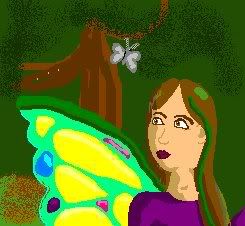|
|
Post by Enn on Sept 7, 2007 19:23:14 GMT -5
Zombie thread! Well that's daft. I'm an atheist- I don't go around stealing or murdering or anything, and I know right from wrong. To think morality is only based on us fearing we have to be nice and good, else burn for all eternity or face similar punishment, is pretty depressing- just like you thought life without a God could be. I like to think that humans aren't as awful without religion as that, that we would know hurting one another is wrong despite whether we "had" to or not because of what a book tells us to do. Nick, I think you're extrapolating a bit too much. Look at what Craig *actually* said vs. how you interpreted it. He said morality is based on something more than we can see-- he didn't say that "something" was God or fear of eternal punishment. Obviously that is what he believes, but he wasn't saying that everyone has to share that belief in order to have any morality. He was saying that the source of morality is intangible, something "more than we can comprehend", because yes, we all know right from wrong, at least on big things like murdering people, but *how* we know is another matter that's not so obvious or easy to pinpoint, whether you think that "something" is God or social norms or survival instinct or whatever. And there's no need for insults. Feel free to disagree with someone and state your reasons, but it's not necessary to put down what someone else says as "daft". He also gave, along with the "belief in something more", specific reference to God and religion, and earlier on Heaven. Asking what defines right from wrong without them, saying if there is nothing more (as atheists believe) people would behave immorally and selfishly. The intended meaning behind those words is obvious. As far as bringing up God and eternal punishment, clearly the sentence "If nothing comes after life on Earth, then nothing matters; people would live selfishly and for their own personal gain" suggests that it's an afterlife which people act differently to avoid, and whilst that afterlife is not necessarily Hell it is clearly something along those lines. It certainly sounds to me like you'd need to have faith in that to act morally. Daft as a word is one of the least insulting I've ever come across, I don't know if that's the same where you are but in the UK it's more along the lines of silly- and I certainly know that "silly" and other similar terms has more than once been used in these boards without complaint. |
|
|
|
Post by Stal on Sept 7, 2007 19:43:42 GMT -5
Around our parts daft is usually used in terms of things like dumb, morons, etc. Hence the easy misunderstanding in what was meant by the word.
Anyway, I think the argument of "Well, I'm an athiest/agnostic/pastafarian and I'm still a moral person..." is a bit of a moot point.
See, morality has become something outside of religions today. It's not to say only religious folk are moral, but it's a point that morality is indeed preached in these religions.
And the foundations of most societies today are religious in nature and have basic moralities from that religious foundation woven into their society. It's become cultural, and culture takes a long time to change.
So the question could be...where did the morality originally come from. Sure, you can say it's inherent in most human beings, but to what extent? We've all seen children that like to steal from others and need to be taught not to. And while there would still be overlap, things that go without saying (outright killing someone, for example), I don't know to what extent it'd be viewed differently. I mean, take a look at ancient societies that didn't have the same sort of religious backgrounds that most cultures have now, and you'll see societies that viewed things in many different ways.
So can it really be argued all these moralities are ingrained in people? Humans aren't really altruistic by nature. I think one would have to dig really hard, show a lot of research, studies, etc to prove anything along these lines. Otherwise, no one can really use modern day examples of non-religious moral people, due to the cultural aspect.
|
|
|
|
Post by Tdyans on Sept 7, 2007 21:33:53 GMT -5
Daft as a word is one of the least insulting I've ever come across, I don't know if that's the same where you are but in the UK it's more along the lines of silly- and I certainly know that "silly" and other similar terms has more than once been used in these boards without complaint. Maybe it is a cultural difference then. Dictionary.com defines it as "foolish, senseless, stupid" and I read it more along those lines. So if you meant it as something more harmless, fair enough. My apologies. It's still better to say, "I disagree with what you said" than "What you said is silly" even so. As for the rest, I already said that it was obvious what he considered the "something" to be God, but that doesn't change the fact that you read way more into that particular statement than you needed to. Yes, he was honest that he believes in God himself, but that particular statement wasn't saying "You must believe in God also in order to have morality." In fact, it seemed the author was being very careful *not* to say that and to be more general. It was only saying, "You have to believe in something bigger than yourself in order to have morality." That for him that "something" is God doesn't mean that the statement can't apply to someone who doesn't believe in God. You, for instance, obviously believe in "right and wrong", since you say you know the difference between the two. You may see some grey areas, but obviously you do believe that some things are definitely right and some things are definitely wrong, i.e. stealing and murdering. You also believe that what is right and wrong is bigger than yourself-- you don't believe that it's something that you made up on your own, nor do you believe that it applies only to you. If you saw your neighbor kill someone, you wouldn't say, "Well, he must not think that's wrong, so okay," you would say, "That's wrong." Hence, your morality proceeds from this sense of what is right and wrong-- something bigger than yourself-- whatever your source for it may be. And that's all that was said. And that's all that I'm saying-- that before you go off on something that someone said, make sure that you are going off on what they *actually* said and not what you're reading into it. Context is important, but sometimes you have to set it aside as well. If you still disagree, so be it. I just felt like you jumped to an unfair conclusion and jumped in myself, but I don't really want to be involved in this board, so I probably won't be back. |
|
|
|
Post by Jacob on Sept 11, 2007 22:30:36 GMT -5
OK, I know this is a touchy subject, so I'm just going to kind of type what I'm thinking and see where it takes me. Obviously, tolerance is extremely important. I don't have anything against the beliefs of other people, because (obviously) it's their belief and I have nothing to do with it.  So, my personal belief is that there is a God. I'm Catholic, and I could ramble on for a long time about the specifics of all my beliefs, but I know them well enough and most of you have heard them before, so I guess I'll go into more of... personal thoughts on the subject. I feel like looking at the world from face value, only believing what we see or what can be proved, can be depressing. Whenever I doubt my faith or wonder if there really is a God, I see the world as cold and harsh and very, very lonely. People are so good and real and alive that I feel like death cannot be the end, and while the limits of my human mind have no certainty of anything that isn't proven, I can still believe in heaven. I don't know what it's like, or even if it's a place or just a state of existence, but I'm convinced that life cannot simply just end. It seems like a lot of people will turn to God when they need something, or when something goes right. But if times are tough, or they don't get the response they think they should get, they get resentful and take that as proof that he does not exist. Personally, I believe that hard times are sort of like a test, just suffering we need to get through. Another belief of mine that is very... theoretical, is that all people are connected. I kind of picture heaven as everyone being joined together, keeping your identity but uniting and living through each other, experiencing and sharing everything. I don't know if that's a religious or just a personal belief, but it's nice to think about. Overall, I just feel like if there's no God or religion... what is there? What defines right from wrong? If nothing comes after life on Earth, then nothing matters; people would live selfishly and for their own personal gain. I think that morality in its most basic form is defined by belief in something more than we can see, something that means more than we can comprehend. a lot of what you said intrigued me. The world and people CAN be seen as a cold and dark place, but people, no matter who they are, have the potential to be very caring and loving. One doesn't need to believe in a god to see or express love. It could be seen are are all connected, and that we want to be, but where is that line? If you are one with another, how do you define yourself from the other, unless you really are seperate? Self is defined by another, but it's also defined by your own actions, so I find it conflicting to see how we all can be connected, when our minds are our own. god or no god, isn't what is moral defined by the times and circumstances? There isn't an absolute truth or justice in this world...just what works at the time. What was justice years ago, would either be cruel or not apporpriate, or not compatable with the culture or minds of the people. And if nothing exists after this life, that doesn't mean we become violently selfish, because that may not even bring us contentment while we are here. Isn't that what we are all seeking? contentment on this earth while we are alive? You raise interesting questions...thank you. |
|
|
|
Post by Deleted on Sept 13, 2007 22:04:44 GMT -5
***WARNING: WHAT FOLLOWS MAY BE USELESS, NONSENSICAL, AND POSSIBLY ACCIDENTALLY OFFENSIVE TO SOMEONE***
Don't say I didn't warn you. ^^ I have a talent for these things.
Anyway, first off, I do respect everyone's opinion and their religion. However, that does not mean that I am going to be quiet about what I believe in. Because getting dirty looks from everyone in the vicinity when I voice an opinion is starting to get annoying. (Not you guys.)
Secondly, I'm an atheist. There, said it. Why?
Because there is no religion I can really believe in. Seriously.
I'm not a very spiritual person. Going to any church is torture for me (partially because any mention of 'Jesus', 'God', 'the Lord', or related words makes me uncomfortable, partially because I can't it still for more than five minutes without having something for my hands to do.) I know perfectly well I'm probably going to Hell if God does exist. And to be honest, Heaven does not sound much better.
I'm also a kinda scientific person, if this makes sense at all (because those who really know me also know that I spend half the day daydreaming about characters, wishing I could live in Neopia despite knowing all the dangerous beings there, and occasionally coming up with theories on how magic would be possible.) So while I know that there's no way of proving it, I'm always wondering if God can really exist. Perfectly innocent people dying for no reason I can fathom? If there's a God, the first word that comes to my mind is 'human'. The second word is 'sadistic'.
And I cannot get an honest, good reason for why I should believe in God in the first place. It's always something like 'you'll go to Hell if you don't'. Yes, thank you for your concern, but if I'm going to Hell for that, then people are either really, REALLY weird/twisted, or God is not as great as people claim.
So what came before and what comes after? I have absolutely no idea. Reincarnation seems valid. Maybe a God IS valid, and real. (or maybe even several gods. I always liked that idea a bit more.) Theoretical physics seems to be involved with religion more than I used to think.
So I guess all I'm saying is that if you prove it, I'll believe. But until then...
|
|
|
|
Post by Strife on Sept 14, 2007 19:15:14 GMT -5
Well then... I was a bit hesitant in my first post, but I think i'm ready to open up a little more. ^^
It sounds to me like you and I are on common ground, Michelle. =) I'm an atheist myself, for the most part. It's just hard for me to believe that there is a single God out there in the universe who happens to look exactly like a human and have the same moral judgements as human beings. If there is a supreme being out there, I highly doubt that they would look/think like a human being, because humans are far from supreme.
I've had a lot of time in my life to think about religion, and when it all boils down to it, it is my understanding that no two people have the exact same beliefs. Everyone views the universe differently because of the different circumstances we grew up in. Even a set of twins who grew up as, say, Catholics, will still have differing views about certain aspects of their religion. Because of this, I think it's pointless to argue that your religion is the only 'true' religion.
We're humans, and although we have the capacity to learn many, many things about the universe, we are still limited by our biology. We will never, ever have a complete understanding of how everything in the universe works, so we will always need to simplify things by creating our own religion. To me, 'God' is just a short way of saying 'everything in the universe that I don't understand, but happens for some unexplained reason'. And because religion is an invention of mankind, we can never say for certain that mankind's view of the universe is perfect.
My view on religion is that it should never, ever be taken seriously, because the universe does not revolve around your beliefs, my beliefs, or anyone else's. Of course, the sad fact of life is that too many people take their religion way too seriously. They end up getting into pointless arguements and even killing people, because they're so convinced that their religion is true that they won't consider the views of others.
I can be stubborn about my scientific beliefs - I won't hide that. But I feel that sometimes, it's good practice to set aside my scientific views for a while and try to imagine other perspectives. What if the universe really was controlled by a supreme being, observing the Earth like a student observes cells through a microscope? Now obviously i'm not doubting my atheist views here, but i'm trying to picture another person's views about how the universe works. I'll never fully understand another person's beliefs, but the least I can do is try to fantasize what the world would be like if it was governed by that person's religion. Because to be honest, I really don't want to be intolerant about people's deepest beliefs - not only would I become the very thing that I hate, but it could also cause me to get into an unnecessary argument or fight. And I don't like fighting with people in real life.
So to summarize, i'm atheist deep down inside, but I try to be as tolerant as possible towards the beliefs of others.
|
|
|
|
Post by Gail on Sept 15, 2007 21:53:30 GMT -5
Personally, I think I'm agnostic. There could be a god/gods, or maybe not. There might be a type of life force too. I really don't know, but it would be interesting to explore different religions- either from a scholarly standpoint or attending different services.
But I believe faith is very important to humans in general. It makes things more organized and leads to a less chaotic understanding of the world (or universe) in which they live. Such faith can give people hope- whether in a high power, progress of humanity, or help them in times of need. But faith does not always have to be tied to a religion with a specific higher power.
I think, whether in religious matters or otherwise, we all have some kind of faith. Yes, even in "science". It is impossible for one person to discover/ research everything in the matters of gravity, origin of the planet, movement of the stars, etc. Often, people rely on printed means to learn about concepts that have taken others their whole lives to truly figure out. Most believe there are 9 (or 8...) planets that revolve around the Sun. How many planets have you personally gazed at through a telescope and marked their rotation or phases? If you didn't personally do all those things, then you still have faith- but rather in the form of the printed word and researchers over the centuries. So I have a lot of faith- though not quite as much regarding a higher power.
I think morality stems more from groups in society and kinship than religion. Morality may be ingrained in people- but that'd be from their culture. Lots of cultures have creation myths and may not have a "this deity will punish you or others if you do this thing wrong". Not all cultures have a clearly defined afterlife determined by one's moral actions on Earth- although many cultures do. Religion seems more of an effect of group induced morality rather than being a cause.
What's really interesting is how there are a lot of parallels between religion and 'separate' fields. Like, the existence of the Abramahic religions' 'great flood' and the dispersal of people languages in the "Tower of Babel" verses with a theory regarding the spread of Proto-Indo-European languages occurring around the same time being spread by a flood...
There's a lot in common between 'religion' and 'science'. Now, I don't really see how much these institutions sometimes disagree with one another...
|
|
|
|
Post by Dragon on Sept 16, 2007 17:48:15 GMT -5
I guess I'm a spiritualist. But I feel that my religion doesn't need a name. Because i know it's the truth. Infact it's not even religion now that I think of it. It's just the truth. However I don't bash on peoples religion, especially about Heaven/Hell or whatever. Because when you die, you go to wherever you think you'll be going.
However I don't feel that any sort of god made this planet or another. There are planes of existence. We are on the mortal plane. Then there's the spirit plane. How do I know this? Especially if I haven't read this out of any holy book? I've talked to the spirits. Yes, that's write. i've scribbled (holding a pen and the spirit channels energy through you to make it move). I've talked to them in my sleep.
And no I'm not wiccan. I don't have a deity that I pray to. I believe in coincidence and divine intervention... it's all a bit muddled.
My "religon" isn't even like a religion... it's just a part of life.
|
|
|
|
Post by Dice on Sept 16, 2007 18:02:06 GMT -5
I'm an agnostic/atheist (despite the still ongoing attempts by my family to raise me as a Christian).
I find it very hard to explain my views on religion, but I'll try. First of all, I don't believe fully in any religions. I was adopted into and raised in a Christian family, and am expected to believe heart and soul in Christian beliefs, which rather I question deeply. What if I had been raised in a Jewish family? I cannot give myself to any one religion knowing that, had circumstances been different, I might believe just as fully in a completely different religion, which says to me that no religion is 'completely right'.
I agree with Leoness, who said on page 2 that everyone has to believe in something. Well, I believe in the ability of people around me to generate love and happiness, as well as suffering and hurt. That's all I'm concerned with right now. I believe in dealing with the world, and with the love, hope, and glory --not necessarily derived from a religion/higher power--, as well as the pain and sorrow, that can be found in the world right here and right now. Could there be a higher power? Could their be life after death? To those questions and many others, some I am inclined towards no, others yes, but overall, I don't really care.
|
|
|
|
Post by (_+*Lou*+_) on Oct 21, 2007 14:35:12 GMT -5
I'm Presbyterian. Basically.
I say basically, because, despite being confirmed and everything, I still have no real ideas of what the deferences between a lot of denominations are.
I also totally respect the beliefs of others. I enjoy having civil discussions about them with friends, although there's really nothing we can say to change each other's minds during them, they're more discussions than debates.
I belive in science, too, and I've never really understood how people can say that evolution and God are not compatible. In the fourth epoch, He made the fish become amphibians...
To be honest, I've never been able to really understand how science and God are incompatible.
I believe in all the stuff about the Trinity, and Jesus dying for our sins.
I also (this is the Presbyterian part, right...) believe that God has a plan for my life. And I might completely mess up that plan, as I have free will, but that, on it or off it, God will love me and help me along, even though I don't deserve it.
Because you don't deserve love, it's just there.
I'm sort of conservative (*eyetwitch*) in how I let myself behave, but I could care less about others. IE, I'm not going to be a demon for Halloween, but I certainly see nothing wrong with you doing it.
(I, btw, am a cheesy horror movie character, representative of Exorcisms R Us, for Halloween. Yes, my little sister is dressing up as a devil. And I want to annoy her for unrelated reasons.)
I also feel that those who burn fantasy novels as ungodly have something very badly wrong with their self esteem.
I support gay marriage, but am anti-abortion. Yes, I get that those are two completely separate debates, but they tie in with how I view religion.
I geuss my principle religious view are these: God forgives.
|
|
|
|
Post by Deleted on Nov 17, 2007 4:25:30 GMT -5
Well, it seems this board died a long time ago, but I shall respond anyway!
I am an atheist. I do not believe in a god, but nor do I neccessarily believe in evolution. (Although, that seems much more believable to me, considering how much DNA we have in common with other animals. Yes, I just called humans animals.) Instead, I think that we as humans are not intelligent enough to figure it out (seeing as we only use a small percentage of our brain) and so we made something up and went with that. Sort of like with the ancient Egyptians and Greeks: they didn't understand why it rained so there was a god who did it. Modern people just simplified it a bit, so instead of there being thousands of gods, there's just one who does what they all did.
I just don't buy it. I strongly believe in reason and facts, and I can't find a reasonable, logical, level-headed way to reach the conclusion that a god exists. This is not to say that I have an issue with people who do believe in god (I come from a long-line of...some sect of Christianity. I'd tell you which, but I'm not particular enough to ask. My dad was even a religion major. I'm the only atheist in our entire family.). I enjoy seeing why people think what they think, as long as they don't attack me for thinking what I think.
Anyway, I suppose feeding into that is I am an Existentialist. I think it would be easy if there was a god controlling everything and having some great big plan set out for us, hence why so many people believe in such, but in reality, we are condemned by our free will to make our own choices and take responsibility for such. And that scares people.
|
|
|
|
Post by The Wanderer on Nov 17, 2007 7:53:52 GMT -5
This post is directed at the entire issue in general, and is not directed at anyone on a personal level.
-----------------------------------------------------------
I like how this whole debacle goes both ways.
Religious people are outraged at mockery symbols, like a Darwin tag that is made in the image of the Christian peace fish, or the Flying Spaghetti Monster.
And atheists, or believers in science and philosophy get flustered, when people start quoting Bible passages, or whatnot.
I think this whole issue is driving everyone mad, and until the day both sides wise up and realize there's no way to control other people's will, and beliefs (never was, *hopefully* never will be) then there's only us sitting there letting ourselves look like fools and hypocrites over something that can only be resolved within.
Sorry to say, but from where I sit, NEITHER side has gained ground on this matter. Let's stop treating this like a winner-take-all contest.
|
|
|
|
Post by Enn on Nov 17, 2007 9:57:21 GMT -5
Instead, I think that we as humans are not intelligent enough to figure it out (seeing as we only use a small percentage of our brain) If you mean the "10% myth", that's wrong- we use the vast majority of our brains. Just a small point. |
|
|
|
Post by Deleted on Nov 17, 2007 11:36:53 GMT -5
I am aware of that, but I am also aware that we don't know how much of our brain we actually use (seeing as scientists have yet to quantify the exact full potential of the human mind) and therefore, it is quite impossible to determine how much is used or not used. While 10% is too little for us to have evolved as we have, it is quite possible that we don't use our full potential.
EDIT: I suppose I should add that this is from what I've read and it's possible that new sources have come out since I've bothered to look into the subject.
Not that I particularly care one way or the other. I'm not big on science.
|
|
|
|
Post by william on Nov 17, 2007 14:14:14 GMT -5
Science has never considered that humans use a small fraction of their brain.
|
|













